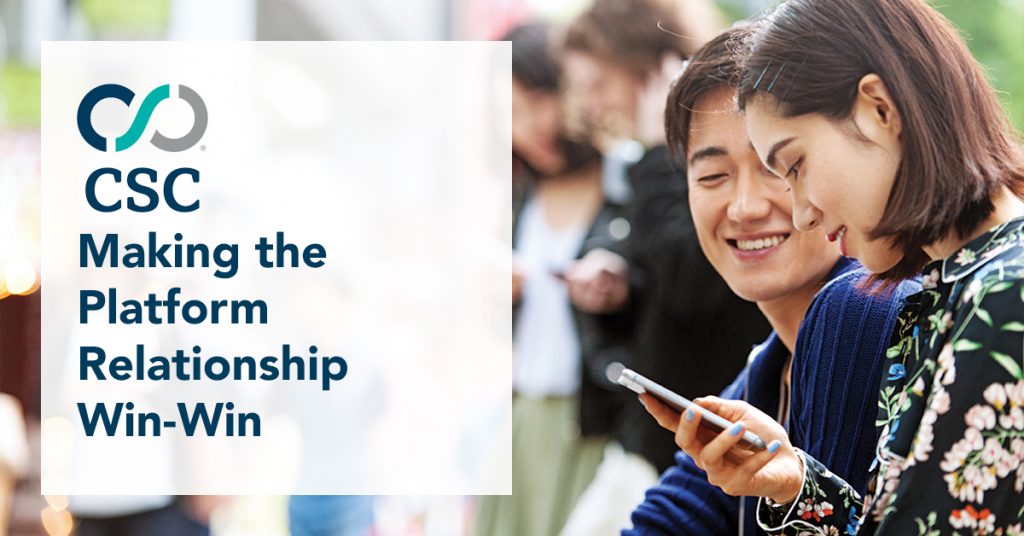
By Alban Kwan, CSC East Asia regional director Share this post 


CSC recently participated in an open discussion at the World Trademark Review’s APAC WTR Connect, where we moderated a discussion with brand owners, Western Digital® and PVH, and platform owner, Alibaba®, on the topic: “Making the Platform Relationship Win-Win.”
How do brands define what a platform is?
For the brand owners, a platform could be any distribution service of their products—be it a traditional eCommerce marketplace like Alibaba or Amazon.com®—or other digital service enablers like social media platforms or communication tools like Facebook® with its marketplace, or WeChat.
Between 50% to 70% of a brand protection manager’s work revolves around dealing with platform issues, and this is exacerbated with the pandemic, where more offline activity has shifted online. Not only are consumers purchasing online, but counterfeiters are using online channels to market their goods. There’s also an observed increase on social media with live streaming sellers.
However, despite 90% of the challenges arising within traditional eCommerce marketplaces, brand owners still believe they have a positive win-win relationship with platforms to ensure their brands are effectively protected, and appropriate action and enforcement is being taken against counterfeits.
What is a win-win relationship?
For a relationship to be successful, it involves both parties understanding the perspectives and success criteria of the other party.
For a platform, one of their key aims in a relationship is to establish trust with the brand owner, and to be able to provide product intelligence to help brand owners identify which goods are being sold on the platform. Just as important is that their platform maintains a favorable reputation among consumers, so customers have confidence in the platform and know they’re buying authentic products. Features such as seller ratings, authentic customer reviews, proactive brand authentication, and checks for listings will help customers make informed purchase decisions.
For brand owners, having a cost-effective notification system and an intelligent monitoring platform that learns from prior cases helps ease their monitoring and enforcement workload. Platforms that offer proactive screening or gating, or establish a regular cadence of two-way communication, are seen as effective mechanisms that platforms can offer to brand owners.
How can a win-win relationship be achieved?
It was unanimously agreed that vendors play an integral role in the brand and platform ecosystem. The brand owners themselves cannot handle all issues at once, alone. Vendors help to simplify the enforcement process, which is a much valued time saver. As an added benefit, vendors may have specialization and local knowledge in the different regions and channels. With the right product knowledge, and adherence to compliance, they are an effective addition to combating fraud and infringement that’s seen on online platforms. However, the direct relationship between a brand and platform is critical when escalations occur.
Key challenges faced by brands and platforms are data and privacy regulations—how much data sharing is achievable among the myriad of platforms, vendors, and brands so that a centralized repository of information is visible?
The panelists recommend keeping communications open between brands and platforms, committing to the fight against infringement by learning about the various programs, providing constructive feedback, and setting realistic expectations. The relationship between brands and platforms should be a collaborative instead of a combative one.